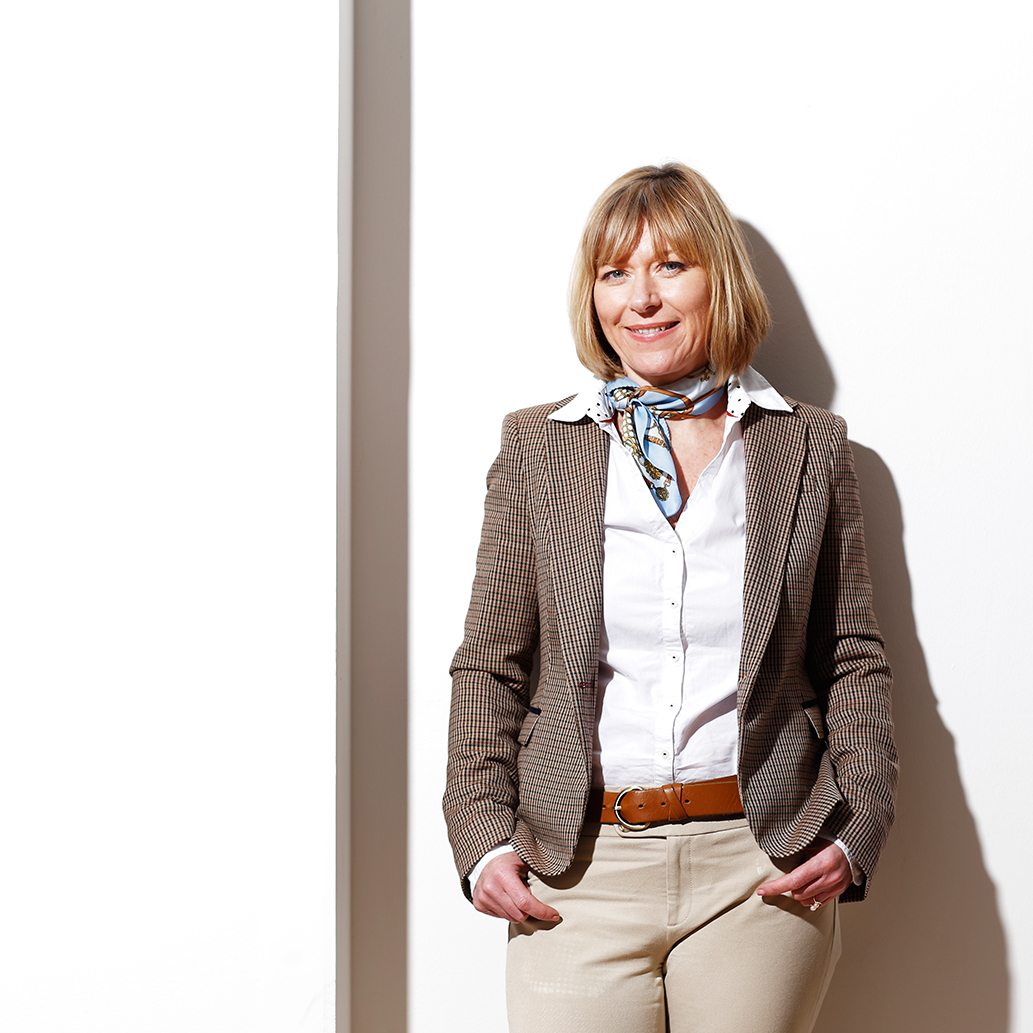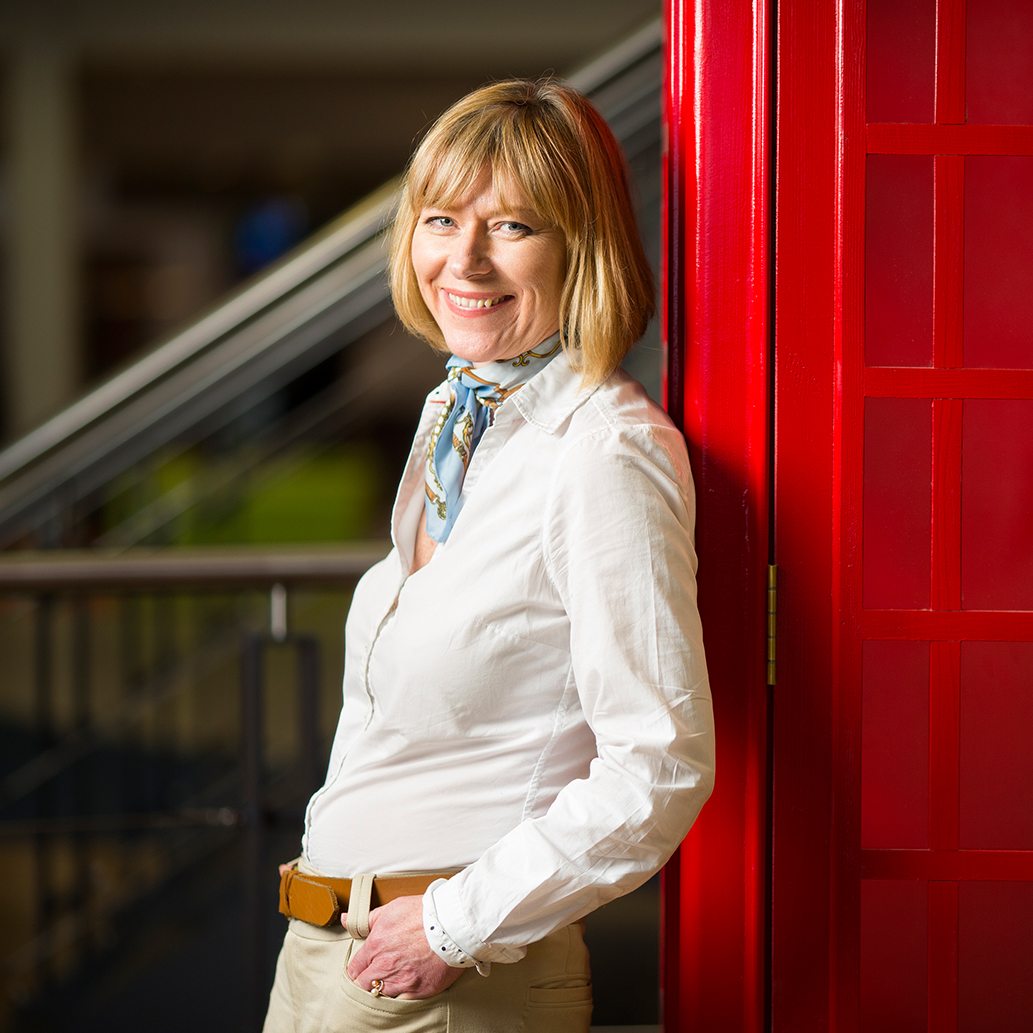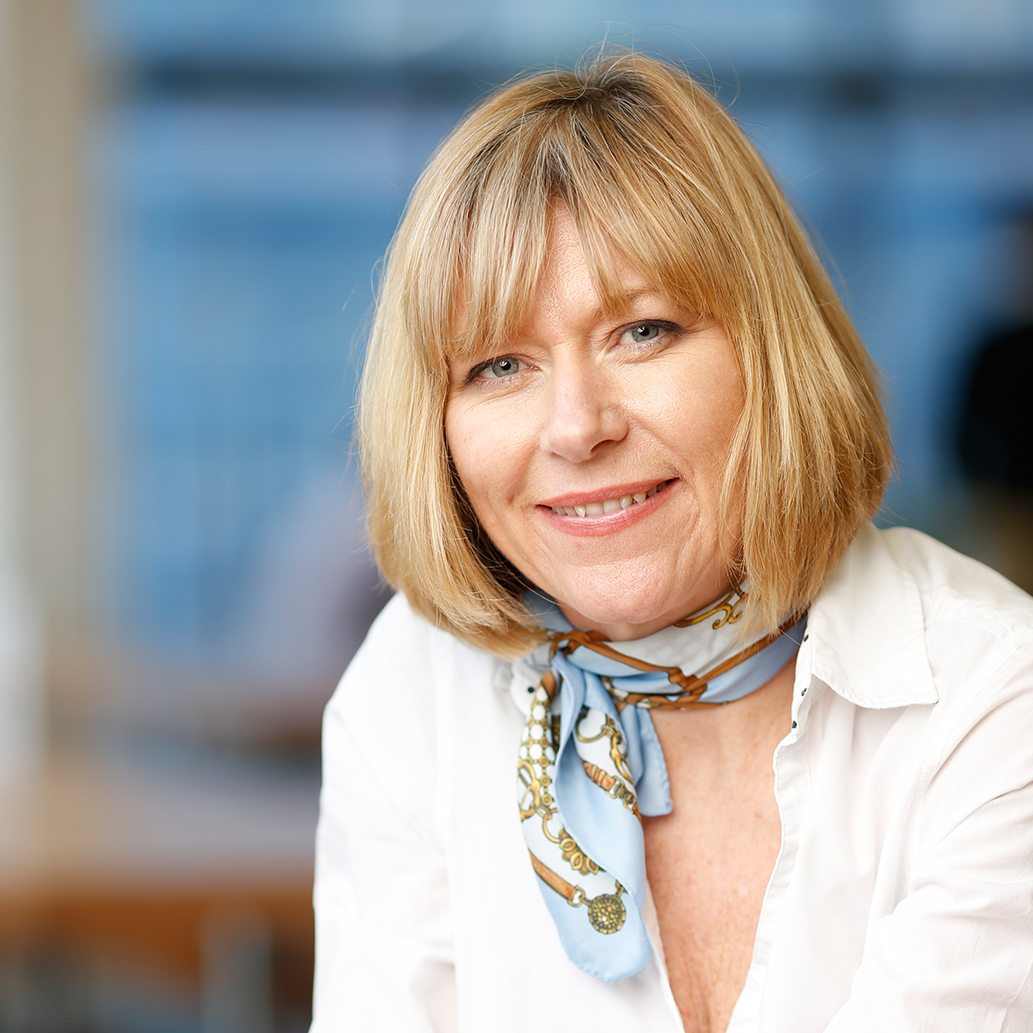Lynne, tell us about your early career and, HR in particular, what interested you?
I started out my career with the John Lewis Partnership and, I suppose quite quickly, I came to the conclusion that organisations are these fascinating things made up of people, working through processes and delivering outputs. It doesn’t matter what the business does, it’s the people and what they do that makes the difference. I just got very interested in how you can affect the different levers in people management, to change and vary outputs and, of course, it all comes down to how they’re led. So, that’s what got me into HR, and I decided early that I wanted to specialise in HR, after working for Tesco for 11 years, involved in a variety of HR and line management responsibilities, I realised that was where I really engaged.
John Lewis and Tesco must have been quite different environments.
I think where John Lewis got it right early was, it’s not just about the workplace, or in retail, the products you sell, it’s about the people that make it happen. If they are happy, feel valued and looked after and are engaged, that translates completely to the customer experience. So as HR and business leaders, if you can help make people’s lives better, then that’s a very clear purpose and one you can get to grips with. Of course, this was helped a great deal at John Lewis, with the partnership model. I remember my first few weeks at Waitrose, getting some experience in the fruit and veg department, where I threw away some mouldy oranges and a colleague came up and said; “look, two of these are perfectly sellable”! And that’s the spirit you have there.
But John Lewis at this time, not now of course, was not in growth mode. Indeed it still shut on Monday mornings, and I was ambitious and felt I needed a more dynamic growth environment. I think there’s an interesting case study in John Lewis and Waitrose. During my time there, the leadership was focused on making what they had as good as possible, and about the pursuit of happiness for partners, as opposed to strengthening competitiveness and growth. In isolation, those are worthy aspirations, but the bigger picture was, what was happening in the sector, and how you avoid your strengths from becoming your weaknesses. Of course, in more recent times, under new leadership, they have managed to grow and maintain many of those traditions, so endemic and admired in the brand.
And you moved next to Tesco, at the dawn of its mass expansion phase.
I joined as a store personnel manager when Tesco was at least number two to Sainsbury’s, and it didn’t have a great reputation. I remember telling people I was moving from Waitrose to Tesco and they were quite sniffy about it. But what I saw and what I was told, in terms of projections and growth plans, I just knew that it was going to be on a big scale, and I definitely wanted to be a part of it. Over the next decade, Tesco rapidly overtook its competitors, and in HR, we introduced some ground-breaking initiatives and really worked on a robust framework that could withstand the rigours of this growth. We heavily analysed levels of engagement, linking that to the customer experience, and I think Tesco absolutely recognised they’d lost their way, in the drive for productivity and efficiency, about who could scan the shopping the fastest. It was talking to customers that really confirmed what was already feared, that shopping was just a horrible experience. So we did a whole exercise about turning it on its head, and introduced the “Every little helps” motto, the Clubcard, introduced service assistance, removed the revolving doors, so some big and some little things. It was an extraordinary time, to be part of turning an organisation, focused on productivity, into one that was customer-centric. We built the engagement from within, and reminded ourselves that we are supermarket shoppers as well, so let’s bring our personality and our empathy for the customer to work, and that was a fundamental shift.
And you experienced a number of different roles there, that must have been useful experience.
Yes, I ran a store, was head of HR for all the stores and literally went out and spent time in all aspects of the business, at all levels. It was primarily about communicating the messages to people saying,.“we know you really want to give great service because most people get out of bed and want to do a good job”. So we spent a lot of time understanding and listening, and really worked on changing things that were getting in the way of that. As expected, when you ask people their opinion, they do give it, and a lot of the ideas came from store teams. Simple things like the wine carriers, instead of a bag of broken glass and merlot in the car boot. It was an amazing period and I learnt many things about what engages people and what can hold performance back. The early results showed Tesco that the way to get close to the customer is through the people that directly deal with them, and when you start digging, there’s all sorts of stupid policies that get in the way of people doing a good job, so get rid of them! It was a big lesson and actually running a store really brings that home.
The other thing I learnt was, Tesco is brilliant at talent management! The store managers had a passion about what brings people on, and they pushed me into a number of roles I wasn’t ready for, really took risks and that’s great instinct. I was lucky to be there at that time. The deep learning was if you have customers, you have to be customer-centric. It sounds obvious, but if you’re rewarding the wrong behaviours, you can’t expect your people to have real empathy with customers, and you have to uncover that type of thing before you go about making those changes. The worst is, when organisations say they’re all about “something” and when you take a good look, they’re not, that can be hugely damaging. My main learning here is, that the answers are always out there in the business, and if you just give people the scope and vision, they can do quite extra ordinary things.
Tell me about your move to Whitbread, again at a crucial moment in its history.
I joined Whitbread as HR Director of their David Lloyd leisure business, and then went into a Group HR role, focused on change, vision, values and culture. At the time, it was still a pub company, but its aspirations were to be a big leisure and hospitality company and, of course, today it has Costa Coffee and Premier Inn, amongst other big brands. So a huge shift, and a lot of it was around getting the right leaders, skills, focus and the right values. My past experience proved invaluable, especially working in a structured way and my learning continued, working alongside Harvard Professor, Mike Beer, who helped me get to grips with the science behind HR, whole system changes and some truly innovative stuff. A good example was the real values in having a culture that encouraged honest conversation. One exercise was to get a small team to each interview ten to 20 people, asking them to describe the strengths about barriers, and bring all that data back. Then we had a hundred senior leaders together to listen. At the end, they could ask questions, then go away, make sense of it and turn it into an action plan, and we repeated this until we rattled out all the issues that were working against the plans.
I then joined Bupa, in many ways different, but in others quite similar to the businesses I’d been involved with. I was HR Director for the hospitals, and then it was an organisation looking for ways to grow and be more efficient and trying to win bids in the NHS. So again that was around the skills and behaviours you need, this time not about serving grocery customers, but working with people whose job was to save lives. Half way through my time there, it became evident to the CEO at the time that the business needed to be set free and run as a separate business, and my role was focused on the sale of that business. I’m really proud of that period because we not only sold it for over one billion, at the same time we kept employee engagement high and actually improved patient services. The big thing was, how important would the brand be, how would people feel not having the Bupa brand? We knew that would be hard, but ultimately people work for the name above the door and their line manager. So we re-focused over the next 12 months, got them involved in the rebranding exercise and worked very hard on getting people engaged on the journey. It proved to me that you can create a sense of belonging. Then, at that point, when we had sold the business, I got a phone call out the blue to invite me to have a chat about a business challenge, here at Carphone Warehouse.
I went along not really knowing what to expect. I met with Andrew Harrison, the CEO, I listened and I was instantly hooked. I’ve talked a lot about core purpose, and what struck me was, their vision was all around making people’s lives better through connected technology, and making it affordable to the masses. At that time, nobody really knew what that would look like, it was all pretty disparate, different devices. So they were basically painting the vision and saying it was up to me to get the right people and the right skills in place to make it happen. The way it was explained to me was, this would change the world and boy did I want to be part of that! The mantra was; it’s not about chasing the highest price on the stock market, it’s about saying, “why do we exist, and how can we bring this connected technology together, and how can you best solve people’s problems”? If you stick to that philosophy and don’t do anything daft, good things happen.
It must have been quite daunting to hear, “this is what we want to do, now get on with it”! It was more a really exciting proposition, a great environment, but certainly not for the faint-hearted. It’s a much-used phrase, but the passion here is palpable, it’s a key driver of the business, and the people that thrive and succeed are those that seize opportunities, don’t mind taking risks and can cope with constant change. Those less keen really find it hard, but for me, it was a very compelling proposition and I literally went back to the drawing board of everything I’d learnt. I spent some time thinking through what needed to be in place to meet these ambitions and ran the “Fish Bowl” process, getting the people closest to the customer to talk, to bring real operational and customer stories, good and bad, to the leaders… and this paid off in spades! There was some great insight that came out of this exercise such as the “goodwill piggy bank” was getting empty, we’re spending too much time looking at short-term results”. Ultimately, our employees in store are closest to our customers and we wanted their insight to lead our thinking, not only to show how much we value them, but to truly put our customers first.
On the back of the Fish Bowl process, we introduced a balanced scorecard approach to how we ran the business called “Compass” which was based on the principle that you need engaged staff, doing the right things and giving great service, in order to deliver the financial results. Everyone in the organisation got measured and rewarded, whether they’re in the stores or in a financial or commercial department. The spirit was, “you have to engage customers and deliver great service and that will deliver the results”, and this quickly shifted the short-term focus to long-term and sustainable objectives. This again sets us apart, because it means we are rewarding staff on delivering the best customer service possible, which means they can genuinely prioritise customer needs. We also put huge focus on getting the new technology that we were selling, embedded in the business and centrally into the operation. All managers were given phones, enabling them to talk through apps, getting people motivated to fully operate and communicate remotely in compelling and productive ways. Then finally, the fun stuff! The business had taken the culture of engagement for granted, and so we went full-out on creating what we call “magic moments”, whether it’s the biggest party in Europe, where we get all employees together and have a ball, to the little things, like making Valentine’s day special, with chocolate fountains. And we kept all this up and, as these things started to work, the good will just built and built. Another nice touch is we give people their birthday off and send them little gifts, which I think sums up the true spirit of making special moments.
Of course, like most businesses, we’re using technology more and more, but we also have a weekly talk, where we get all our senior leaders together and have a bit of fun. So every month we have a town hall meeting, video it and we use technology like Skype to get everyone involved. We also hold chalk talks, where people in stores talk us through our apps, post pictures and we run discussion boards on topics. But what underpins all this activity is, we let the individuals censor themselves. We introduced “grill the big cheese” where people can ask questions to senior leaders and we encourage that flow of communication and information in every way possible, which feeds into our more formal scheduled meetings. This is pure, qualitative information gathered from all that noise and feedback, and it is being turned into new and better ways of operating. We get our shop managers together twice a year and make it very interactive, sharing experiences and stories. It’s about making that connection between technology and improving people’s lives. But it’s a very competitive marketplace, and keeping people focused on that 24/seven is what it’s all about these days. You have to keep the momentum and be crystal clear about why we are here.
How would you say the employer/employee relationship is changing?
I think we have quite a simplistic view on this! On one hand, the world is changing and on the other, it’s very similar to how it has always been. People want to know they have a meaning, they have autonomy in what they’re doing, and that they feel as though they belong to something. Those are the critical things that matter and we try to encourage that as much as possible. I wouldn’t say we have a big flexible working policy, but we do have freedom and autonomy, and that is what’s important. We run flexible working as a matter of course, it’s not a policy. In stores, they cover for each other, buddy up with different stores, have nights out, and so it goes back to getting the basics right, and having the right framework.
It’s a leap of faith though for many businesses, that have operated under rigid policies and procedures.
I think sometimes when you lose sight of why you exist, then the bureaucrats can easily take over. One of the nice things about Carphone Warehouse, is if you have a good idea you can make it happen. You need frameworks in place and you can’t have people running around like headless chickens. We champion this and empower each employee to think in this way.
What would you say, for the business, is the next objective?
There is so much to do! In terms of the market, only 40 percent of the population has a smart phone, so it’s setting out our stall to win that market, as well as keeping competitive to retain our customer base, and tablet technology has no bounds. So for us, it’s about making sure we’re well placed to get this technology in the hands of as many people as possible. We have a very exciting growth agenda, we’re always evolving and constantly looking for talented people who have passion, energy and creativity. It’s a challenge to ensure you’ve got enough of the right talent, in the right place at the right time, in order to move the business forward. So this is something we‘re always thinking about. In the markets we compete in, we want to work with other partners and take what we do to new markets. We’re developing the business in China and looking at developing economies, so the next stage is about developing new partnerships, both commercial and strategic and, for certain, the big objective is about the connected world.
What have been your key learnings about getting the most out of people?
My key learnings along the way are that, those closest to the sharp-end of the business generally have the answers. Enabling them to find a voice and making sure it’s heard and acted upon is absolutely key. HR can sometimes get a bit too overcomplicated and I think it must focus a bit more on the real reasons a business is in existence, as opposed to just efficiency and optimised performance, although of course these are important. Sure it’s about paying the bills and growth and profits, but those objectives are made more achievable if you remove the barriers that stop them doing their best. So we consistently encourage people to utilise their talent and skills and not leave their personality at the door is part and parcel of what makes the job enjoyable and that drives personal responsibility.
We’ve just launched our own internal X-Factor and the talent out there is amazing, and I mean singing and entertaining. I suppose during my experience and learning, is discovering what really makes people tick and strive to achieve, and I have also learnt a lot about myself too! Top of the list is, to have the courage to trust your instincts and remember, whatever you’re doing, if things weren’t tough and difficult to achieve then everyone would be doing it. And very importantly, vulnerability, being able to admit you are wrong, or that things could be done better, is not a weakness. It’s better to seek forgiveness than ask for permission, and always keep reminding yourself what you’re trying to achieve.












